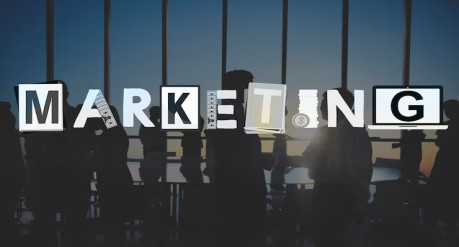 27 May / 2025
27 May / 2025  273 views
273 views
"Marketing's job is never done. It's about perpetual motion. We must continue to innovate every day." - Beth Comstock.
Marketing has come a long way since the
days of print ads and door-to-door sales. The industry has undergone
significant transformations, driven by technological advancements, changing
consumer behaviours, and innovative strategies. In this article, we'll take a
journey through the evolution of marketing, exploring its past, present, and
future.
The Past: Traditional Marketing
In the early days of marketing,
traditional methods dominated the landscape. Print ads, billboards, and
television commercials were the primary channels for reaching audiences.
Marketers relied on demographics, focus groups, and market research to understand
their target audience. The goal was to create a message that would resonate
with the masses, often using a one-size-fits-all approach.
The 1980s and 1990s saw the rise of
telemarketing and direct mail, which allowed businesses to target specific
audiences. However, these methods were often intrusive and lacked
personalization. The traditional marketing approach was largely one-way, with
businesses pushing messages to consumers without much feedback or engagement.
The Present: Digital Marketing
The advent of the internet and social
media revolutionized marketing. Digital channels enabled businesses to reach
audiences with unprecedented precision and personalization. Marketers began to
leverage data analytics, search engine optimization (SEO), and content
marketing to drive engagement and conversions.
Today, marketers have access to a vast
array of digital tools and platforms. Social media advertising, influencer
marketing, and email marketing have become essential components of modern
marketing strategies. The rise of big data and analytics has enabled businesses
to track customer journeys, measure campaign effectiveness, and optimize their
marketing mix.
The Future: AI-Driven Marketing
As we look to the future, artificial
intelligence (AI) and machine learning (ML) are poised to transform marketing again.
AI-powered marketing tools can analyse vast amounts of data, predict customer behaviour,
and automate personalized marketing campaigns.
The future of marketing will be characterized by:
1. Hyper-Personalization: AI-driven
marketing will enable businesses to deliver highly personalized experiences,
tailored to individual preferences and behaviours.
2. Predictive Analytics: Advanced
analytics will help marketers anticipate customer needs, identify trends, and
optimize marketing strategies.
3. Voice Marketing: The rise of voice
assistants and smart speakers will require marketers to adapt their strategies
to voice-based interactions.
4. Immersive Experiences: Augmented
reality (AR) and virtual reality (VR) will become increasingly important for
creating immersive brand experiences.
Conclusion
Technological advancements, changing
consumer behaviours, and innovative strategies have shaped marketing's
evolution. As we move forward, marketers must stay agile, embracing new
technologies and adapting to shifting consumer preferences. By understanding
marketing's past, present, and future, businesses can stay ahead of the curve
and deliver marketing strategies that drive real results.
Subscribe to Building Brands Blog
Comments
No comments yet. Be the first to comment!